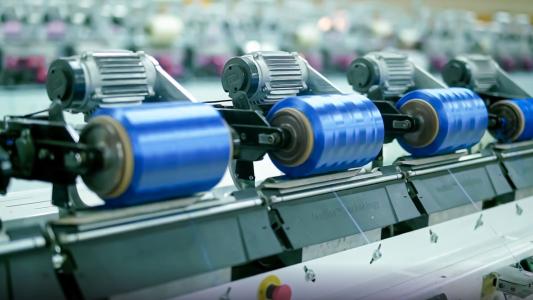Designer antibodies are at the center of two new COVID-19 trials supported by the National Institutes of Health (NIH).
One of the trials will test the ability of an antibody drug, LY-CoV555, to treat people with mild cases of COVID-19. The other will test the drug’s ability to prevent infections in high-risk groups — meaning it could serve as a stopgap until a coronavirus vaccine is ready for distribution.
What’s an Antibody Drug?
Antibody drugs like LY-CoV555 work on a similar theory to convalescent plasma therapy — they help people overcome diseases by introducing helpful antibodies — but they have a few benefits over plasma.
For one, they eliminate the risks inherent in a transfusion. They also provide just the neutralizing antibodies the patient needs, and they’re easier to scale up — for every patient you want to treat with convalescent plasma, you need a donor.
The FDA has already approved monoclonal antibody drugs for other diseases, including rheumatoid arthritis and some cancers.
That bodes well for LY-CoV555’s potential as a coronavirus treatment — its developers won’t need to convince regulators to approve something brand new (a hurdle those developing mRNA coronavirus vaccines will need to surmount).
COVID-19’s Designer Antibodies
To create LY-CoV555, Canadian biotech firm AbCellera and U.S.-based pharma company Eli Lilly started with a blood sample taken from one of the first U.S. coronavirus survivors.
After screening more than five million immune cells in the sample, they identified two dozen that showed significant potency against the coronavirus in lab and animal testing.
They then used one of the most promising candidates to create monoclonal antibodies — lab-made clones of an antibody that binds to one antigen, like the novel coronavirus’s spike protein, to neutralize it.
Their antibody drug, LY-CoV555, is a serum dense with those designer antibodies.
The ACTIV-2 Trial
In June, the researchers began testing their antibody drug in COVID-19 patients in a Phase 1 trial and found it to be safe. Now, they’ve teamed up with the NIH to test it through the center’s ACTIV-2 trial.
Phase 2 of the trial will include 220 COVID-19 patients who do not require hospitalization. Half will receive LY-CoV555 and the other half a placebo.
Development of the antibody drug started with the blood of one COVID-19 survivor.
The researchers will follow up with the patients for 28 days to see if the antibody drug can reduce the duration of their symptoms. They’ll also be looking for insights into the drug’s safety and antiviral activity.
If the designer antibodies generate promising results, the NIH will initiate a Phase 3 trial involving 2,000 non-hospitalized patients (including those from the active group in Phase 2).
Again, half will receive LY-CoV555 and half a placebo, and this time, the researchers will be looking to see whether the antibody drug can prevent hospitalization and death.
Preventing the Spread
While the ACTIV-2 trial focuses on testing LY-CoV555’s ability to treat coronavirus infections, another will test its ability to prevent them.
The NIH is also involved in that Phase 3 trial, BLAZE-2, which will involve 2,400 residents and staff members at U.S. nursing homes and assisted living facilities that have recently had COVID-19 cases.
We have to think about where we can benefit patients the most.
Dan Skovronsky
After giving participants a single dose of the designer antibodies, the researchers will monitor the facilities’ infection rates over the course of four weeks to see if the antibody drug appears to prevent the spread of COVID-19.
Lives could be saved if LY-CoV555 can effectively treat COVID-19 patients or prevent coronavirus infections — but just how many lives isn’t clear.
A Duke study predicted the U.S. would need 40 million doses in 2021, but so far, all Eli Lilly has said is that it could produce 100,000 doses before the end of 2020.
“Many more” doses will follow in 2021, Eli Lilly CSO Dan Skovronsky told CNBC, but even he acknowledges that “that’s still not enough for everyone who might need this drug to get it.”
“We have to think about where we can benefit patients the most,” Skovronsky added. “I think nursing home patients certainly are one of those populations.”
We’d love to hear from you! If you have a comment about this article or if you have a tip for a future Freethink story, please email us at [email protected].






